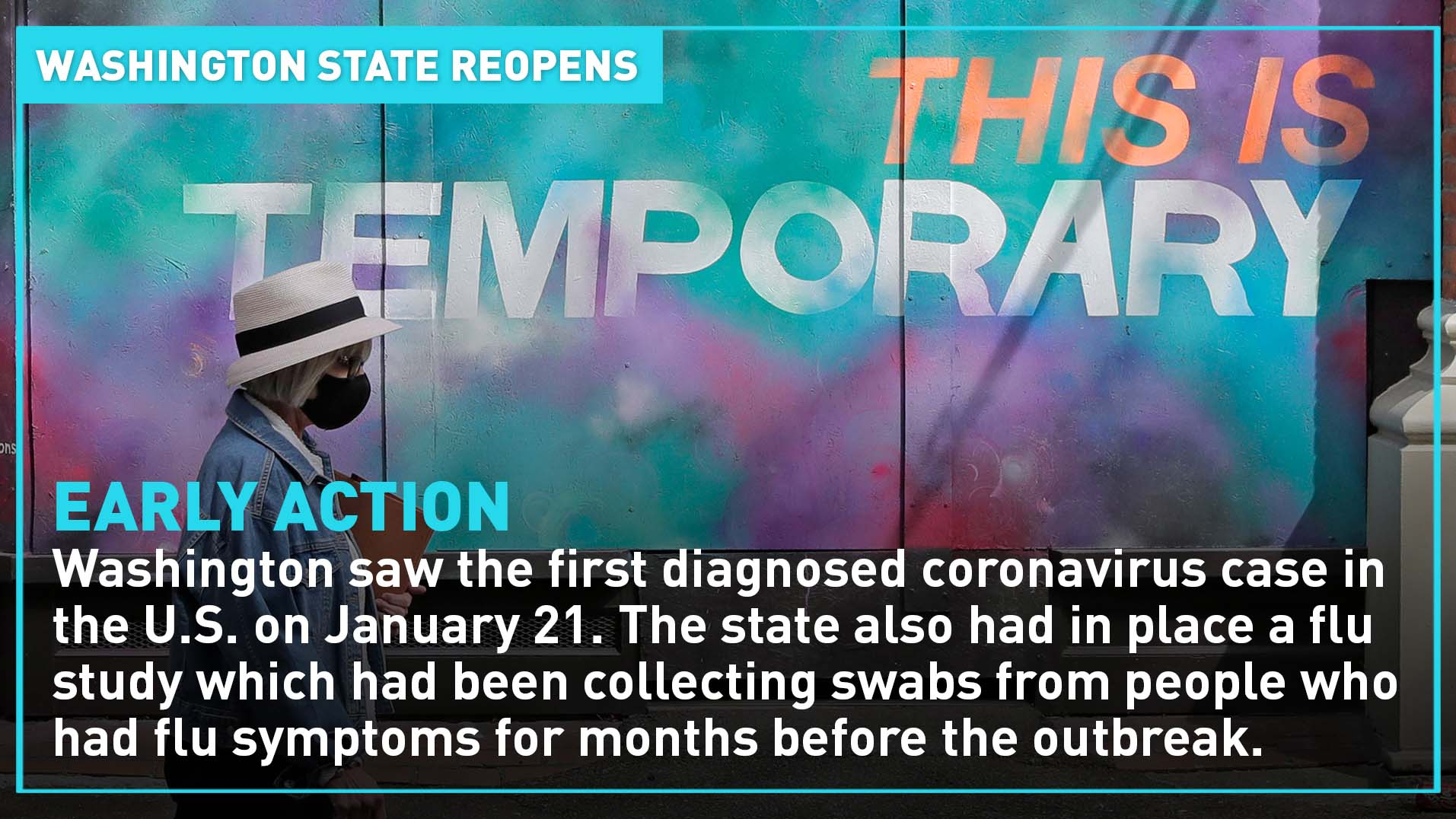The first state in the U.S. to see a case of coronavirus is starting to reopen some businesses and outdoor recreation areas.
It's the beginning of Washington state Governor Jay Inslee's plan to open in four phases, each lasting at least three weeks.
The first phase includes outdoor activities such as fishing, hunting, golfing and some park access.
Some activities, such as drive-in religious services, vehicle and boat sales, car washes, landscaping, pet walkers and retail with curb-side pickup will also be allowed.
Only essential travel will be permitted.

Counties in the state with fewer than 75,000 people that haven't had new cases in three weeks can apply for an exception with the Department of Health that allows them to go to the second phase.
The state will look at coronavirus data before determining whether to move to each new phase, the final being a full return to public interaction.
New coronavirus cases in the state have declined from a high of 435 cases a day on March 23, to 91 new cases on April 26.
As of early Monday, Washington had recorded a total of 15,462 confirmed cases, the majority in the Seattle-Tacoma area and surrounding counties.
At the same time, Inslee has also extended the Washington's stay-at-home order, which began on March 23, to May 31.
Seattle Mayor Jenny Durkan also said the city will continue to operate under a state of civil emergency.
All K-12 schools will be closed for the rest of the school year and distance learning will continue to the end of June.

EARLY ACTIONS
The state has an estimated 7.6 million people and was one of the first states to impose restrictions to curb the spread of COVID-19.
Washington state saw the first diagnosed coronavirus case in the U.S. on January 21 in a man who had returned to the U.S. from Wuhan, China.
The state also had in place a flu study which had been collecting nasal swabs from people who had flu-like symptoms for months before the U.S. outbreak.
After coronavirus cases grew in early March, the Seattle Flu Study began testing its prior samples for COVID-19 and discovered 25 people had the virus, the first in a sample collected on February 24.
At the time, it was the first documented U.S. case of community transmission.
The Seattle Flu Study did the tests in defiance of the federal government, which had turned down their initial request to do so.
The federal government even later sent the state a cease-and-desist letter.
The organizers of the study say it was the early detection of the virus spreading that led to public health efforts to help curb the pandemic.
They believe that similar community-based sampling should be "essential infrastructure for early detection and mitigation of future pandemics."
Check out The China Report, our new weekly newsletter. Subscribe here!